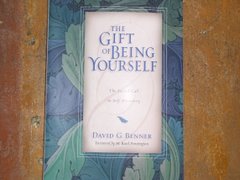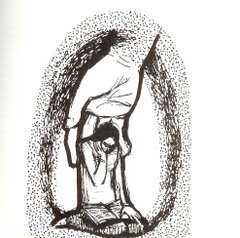Holy Bible, human Bible (3)
Who owns the Bible?
"This question is really about who has the right to claim priority for their interpretation, their 'scriptural voice' to be heard". When a person or group claims that their understanding of Scripture should have priority, they are claiming that they are hearing God's word more clearly through Scripture and discerning God's will more closely than other people or groups."
"It has profound implications for the practice of politics, the search for justice, the way groups of people in the same community treat each other, personal and corporate morality, uses and abuses of money and so on."
We may not think it affects us, because we may be fortunate enough to belong to a group that is not marginalized by society or even worse by 'Bible' quoting Christians. The history of slavery, the practice of apartheid, the subjugation of women and other instances of racism, gender injustice, violence, unjust distribution of wealth and so on, among Bible believing Christians should alert us to the fact that we have to ask how to read Scripture within the context of the concerns of individuals, families, community groups and nations.
Who claims 'property rights' over Scripture and its interpretation? "Claims to ownership of the Bible and therefore to a monopoly to its correct interpretation involves claims by people that their way of seeing things carries the authority of the word of God. If different groups are making such claims for different views, whose claims should have priority? After the Reformation, when Scripture became accessible to every person, the monopoly of Scripture by the Church came to an end. But at the same time, we have ended up for example, with so many denominations, each with its own interpretation of Scripture. The differences may be small in comparison to the similarities (e.g. accepting the Apostles Creed) and yet people can get really heated up in arguing their position over certain sensitive issues.
One of the groups that has been affected by the interpretation of Scripture is women. Many texts are interpreted without regard for the sociological context (patriarchal society) in which they were written or the present contexts within which they are read.
Kathleen Fischer asks the questions that must be in many women's hearts even if unarticulated because they have accepted that the traditional interpretations by male preachers and theologians carry the 'authority of God'. Fischer says: "How can women relate to writings that are the product of a patriarchal culture, writings which function as the final appeal in claims for male superiority and the subordinate role of women? Can the Bible still be the word of God for us?"
Gordon Oliver writes, "These hard questions cannot be spiritualised away. Over traditional, over spiritualised, cheap and easy engagement with Scripture will not do. There has to be careful engagement with the text that connects the resources of analytical skills, pastorally sensitive imagination, hospitable spiritual awareness and courage to argue with the messages it offers. If the Bible is to respond to the hard questions pastoral practice asks, it must be allowed its 'wildness' so that the immense untidiness of Scripture can encounter the messiness and disorder that are as characteristic of human experience now as they were of human experience when its books were being written."






+223.jpg)


























No comments:
Post a Comment